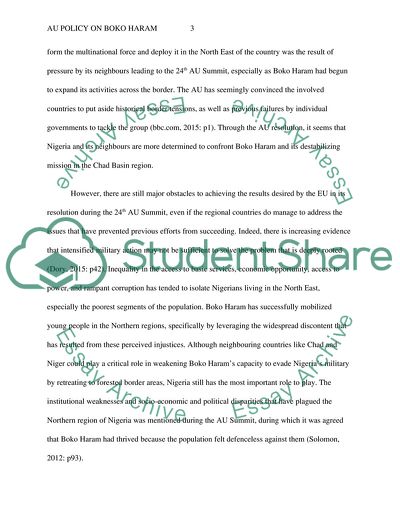Cite this document
(AU Policy on Boko Haram Essay Example | Topics and Well Written Essays - 1250 words, n.d.)
AU Policy on Boko Haram Essay Example | Topics and Well Written Essays - 1250 words. https://studentshare.org/social-science/1879280-memoranda-paper
AU Policy on Boko Haram Essay Example | Topics and Well Written Essays - 1250 words. https://studentshare.org/social-science/1879280-memoranda-paper
(AU Policy on Boko Haram Essay Example | Topics and Well Written Essays - 1250 Words)
AU Policy on Boko Haram Essay Example | Topics and Well Written Essays - 1250 Words. https://studentshare.org/social-science/1879280-memoranda-paper.
AU Policy on Boko Haram Essay Example | Topics and Well Written Essays - 1250 Words. https://studentshare.org/social-science/1879280-memoranda-paper.
“AU Policy on Boko Haram Essay Example | Topics and Well Written Essays - 1250 Words”. https://studentshare.org/social-science/1879280-memoranda-paper.


